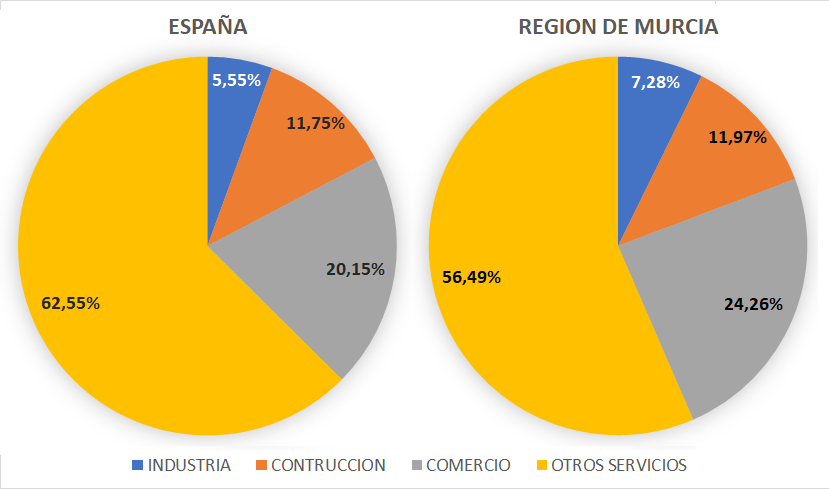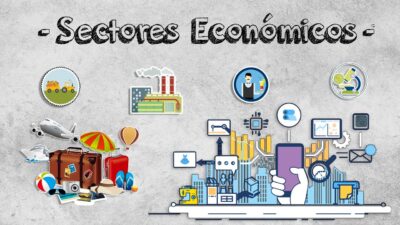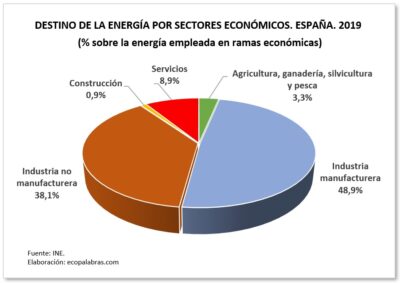
https://finanzasdomesticas.com/sectores-economicos-de-espana
The economy of Spain is made up of different parts, known as “economic sectors.” These sectors work together like pieces of a puzzle to create the country’s economy. Each sector plays a special role, from agriculture to industry, and even services like tourism.
In Spain, the service sector is the largest and includes jobs like teaching, healthcare, and tourism. Other important sectors are industry, construction, and agriculture. Let’s explore these sectors and see why they are important for Spain’s economy!
What Are the Economic Sectors of Spain
Spain’s economy is made up of different parts called economic sectors. These sectors include things like agriculture, industry, construction, and services. Each sector helps the economy grow by providing jobs and products. The term “sectores-economicos-de-España” simply means “economic sectors of Spain” in Spanish.
Agriculture involves growing crops and raising animals. Industry is about making things like cars and machines. Construction is the building of homes, roads, and buildings. Services include jobs like teaching, healthcare, and tourism. Each of these sectors plays a vital role in Spain’s economy.

The Importance of Services in Spain’s Economy
The service sector is the largest in Spain. It includes jobs in education, healthcare, tourism, and more. Many people work in this sector, providing important services to others. Tourism is a big part of the service sector, as Spain is a popular destination for travelers.
Healthcare and education are also key parts of the service sector. Hospitals, schools, and universities provide essential services to the community. The service sector helps the economy by offering jobs and supporting other sectors like construction and industry.
How Agriculture Shapes Spain’s Economic Sectors
Agriculture is a vital part of Spain’s economy. It involves growing crops like olives, grapes, and vegetables. Spain is famous for its olive oil and wine, which are exported all over the world. Farmers also raise animals like sheep and cattle.
The agricultural sector provides food for the country and contributes to exports. It also creates jobs in rural areas. This sector is important for maintaining Spain’s cultural heritage, as traditional farming methods are still used in many regions.
The Role of Industry in Spain’s Economy
Industry is another key sector in Spain. It includes the production of cars, electronics, and textiles. Spain has several major car manufacturers and is known for its quality products. The industrial sector also includes chemicals and pharmaceuticals.
The industry sector provides many jobs and helps boost the economy. It is essential for exports, as many of Spain’s industrial products are sold abroad. The sector’s growth contributes to Spain’s overall economic development.
Exploring the Construction Sector in Spain
The construction sector involves building homes, roads, and other structures. This sector is vital for developing infrastructure in Spain. Construction projects create jobs and support other sectors like industry and services.
Spain has seen significant growth in construction over the years. From building new homes to renovating historic sites, construction is always busy. This sector helps improve living standards and contributes to the country’s economic growth.
Why Tourism is Key in Spain’s Economic Sectors
Tourism is a significant part of Spain’s service sector. Millions of people visit Spain every year to see its beautiful beaches, historic sites, and vibrant cities. Tourism brings in a lot of money and creates many jobs.
Hotels, restaurants, and tour operators all benefit from tourism. The money spent by tourists helps boost the local economy. Tourism also promotes cultural exchange and helps showcase Spain’s rich heritage to the world.
Understanding the Technology Sector in Spain
The technology sector in Spain is growing fast. It includes companies that make software, electronics, and digital services. This sector is essential for innovation and helps drive the economy forward.
Spain’s tech industry is known for its creativity and cutting-edge products. The sector provides jobs for engineers, programmers, and designers. It also supports other industries by providing tech solutions and services.
How Exports Contribute to Spain’s Economy
Exports are goods that Spain sells to other countries. The export sector includes products like machinery, cars, and food. Exports are crucial for Spain’s economy because they bring in money from other countries.
The export sector helps create jobs and supports industries like agriculture and manufacturing. By selling products abroad, Spain can grow its economy and reduce dependence on local markets. Exports are a key part of the “sectores-economicos-de-España.”
The Future of Spain’s Economic Sectors: What’s Next
The future of Spain’s economic sectors looks promising. New technologies and innovations are helping to modernize industries. The service sector, especially tourism, is expected to continue growing. Agriculture will likely become more sustainable and efficient.
There are challenges ahead, such as adapting to climate change and global economic shifts. However, Spain’s diverse economy is well-positioned to adapt. The government and businesses are working together to ensure a bright future for all sectors.
Challenges Facing Spain’s Economic Sectors
Spain’s economic sectors face several challenges. The agricultural sector must deal with issues like water shortages and climate change. The industry sector needs to innovate and stay competitive in a global market.
The service sector, particularly tourism, can be affected by global events like pandemics. The construction sector faces challenges like housing shortages and the need for sustainable building practices. Addressing these challenges is key to maintaining a strong economy.

The Impact of Education on Spain’s Economy
Education plays a crucial role in Spain’s economy. It prepares people for jobs in various sectors like industry, services, and technology. Good education helps people develop the skills they need to succeed in the workforce.
Spain has many universities and vocational schools that offer specialized training. Education also supports innovation and research, which are vital for economic growth. Investing in education is essential for the future of the “sectores-economicos-de-España.”
A Kid’s Guide to Spain’s Economic Sectors: Fun Facts and Figures
Spain’s economic sectors are like different parts of a big machine. Each part has a special job to do. For example, agriculture grows food, industry makes things, and services help people in many ways.
Did you know that Spain is one of the top producers of olive oil in the world? Or that Spain has a thriving tech industry? These fun facts show how diverse and exciting Spain’s economy is. Learning about these sectors helps us understand how the country works!
The Role of Small Businesses in Spain’s Economic Sectors
Small businesses are a vital part of Spain’s economic sectors. They include local shops, family-owned restaurants, and small manufacturing firms. These businesses are often the backbone of communities, providing jobs and supporting local economies. In Spain, small businesses are found in all sectors, from agriculture to services.
Many small businesses in Spain are involved in traditional crafts, like making shoes or pottery. These businesses help preserve cultural heritage while also contributing to the economy. They offer unique products that attract both locals and tourists. The success of these small businesses often depends on their ability to innovate and adapt to changing markets.
Supporting small businesses is important for Spain’s economy. They provide opportunities for entrepreneurship and innovation. The government often offers grants and incentives to help small businesses grow. This support helps ensure that these businesses can continue to thrive and contribute to the “sectores-economicos-de-España.”
The Impact of Environmental Policies on Spain’s Economic Sectors
Environmental policies play a crucial role in shaping Spain’s economic sectors. These policies aim to protect the environment while promoting sustainable growth. For example, regulations on pollution affect industries like manufacturing and construction. These industries must find ways to reduce their environmental impact, which can lead to innovation and new technologies.
In agriculture, environmental policies encourage sustainable farming practices. This includes using fewer pesticides and conserving water. Such practices help protect the environment and ensure that farming can continue for future generations. Renewable energy is another area where environmental policies are making a big impact. Spain is investing in wind and solar power, creating jobs and reducing dependence on fossil fuels.
These environmental policies not only protect the planet but also help Spain’s economy grow in a sustainable way. Businesses that embrace these policies often find new opportunities in green technologies and sustainable products. This shift towards sustainability is becoming an important part of the “sectores-economicos-de-España.”
The Influence of Culture and Tradition on Spain’s Economic Sectors
Culture and tradition have a strong influence on Spain’s economic sectors. Spain is known for its rich cultural heritage, which includes traditional crafts, cuisine, and festivals. These cultural elements are closely tied to the country’s economy, especially in sectors like tourism and agriculture. For example, traditional festivals attract tourists, boosting the local economy.
In agriculture, traditional farming methods are still used in many regions. These methods are often more sustainable and help preserve local biodiversity. In the food sector, traditional dishes like paella and tapas are popular both in Spain and abroad. These dishes not only represent Spanish culture but also contribute to the country’s exports.
Crafts like pottery, leatherwork, and textiles are also important. Many of these crafts are made by small family businesses that have been passed down through generations. These crafts attract tourists and are often sold as souvenirs. The influence of culture and tradition on Spain’s economic sectors helps make the country unique and attracts visitors from all over the world.
How Innovation is Shaping Spain’s Economic Sectors
Innovation is a key driver of growth in Spain’s economic sectors. It involves developing new products, services, and technologies that can improve efficiency and create new opportunities. In the technology sector, for example, Spanish companies are known for their innovative software and digital solutions. This innovation helps businesses stay competitive in a global market.
In agriculture, innovation includes new farming techniques and technologies that increase crop yields and reduce environmental impact. The use of drones and data analysis helps farmers monitor their crops more effectively. In the manufacturing sector, innovation often involves new materials and processes that make products more sustainable.
Innovation is not limited to high-tech industries. Even in traditional sectors like crafts and tourism, innovation can lead to new products and experiences. For example, virtual tours and online booking systems have transformed the tourism sector. Embracing innovation helps Spain’s economic sectors adapt to changing markets and consumer preferences.
The Role of International Trade https://finanzasdomesticas.com/sectores-economicos-de-espana
International trade is a crucial component of Spain’s economic sectors. It involves the exchange of goods and services between Spain and other countries. Spain exports a wide range of products, including cars, machinery, food, and wine. These exports are an important source of revenue for the country and support many jobs.
Imports are also a key part of Spain’s economy. The country imports products like fuels, chemicals, and raw materials that are used in various industries. This trade allows Spain to access goods and resources that may not be available domestically. It also helps businesses grow by expanding their markets.
Trade agreements and partnerships play an important role in facilitating international trade. They help reduce tariffs and other barriers, making it easier for Spanish businesses to sell their products abroad. The role of international trade in the https://finanzasdomesticas.com/sectores-economicos-de-espana highlights the importance of global connections and partnerships for economic growth.
The Impact of Technology on https://finanzasdomesticas.com/sectores-economicos-de-espana
Technology is https://finanzasdomesticas.com/sectores-economicos-de-espana transforming Spain’s economic sectors in many ways. From digital marketing to advanced manufacturing techniques, technology is making businesses more efficient and competitive. In the service sector, technology has improved customer service and streamlined operations. For example, online booking and digital payments have made it easier for tourists to plan their trips.
In agriculture, technology helps farmers monitor their crops and livestock more effectively. Tools like drones, sensors, and data analytics provide valuable insights that can lead to better yields and lower costs. In the manufacturing sector, automation and robotics are improving production processes and reducing labor costs.
Technology also plays a key role in education and healthcare, improving access and quality. Online learning platforms and telemedicine services are becoming more common. The impact of technology on the https://finanzasdomesticas.com/sectores-economicos-de-espana is profound, creating new opportunities and challenges for businesses and workers alike.
The Role of Education and Skills in Spain’s Economic Sectors
https://finanzasdomesticas.com/sectores-economicos-de-espana Education and skills are essential for the growth of Spain’s economic sectors. A well-educated workforce is better equipped to adapt to new technologies and changing market conditions. Spain has a strong education system that includes universities, vocational schools, and training programs. These institutions help students develop the skills needed for various industries.
https://finanzasdomesticas.com/sectores-economicos-de-espana Vocational training is particularly important for sectors like construction, manufacturing, and technology. It provides hands-on experience and specialized knowledge that are crucial for these fields. In the service sector, education in areas like hospitality and healthcare ensures high-quality services.
Lifelong learning and continuous skill development are also important. As industries evolve, workers need to update their skills to stay relevant. This is especially true in fast-changing sectors like technology and healthcare. The role of education and skills in the https://finanzasdomesticas.com/sectores-economicos-de-espana highlights the importance of investing in human capital for economic growth.
The Impact of Globalization on https://finanzasdomesticas.com/sectores-economicos-de-espana
Globalization https://finanzasdomesticas.com/sectores-economicos-de-espana has had a significant impact on Spain’s economic sectors. It refers to the increasing interconnectedness of economies around the world. Globalization has opened up new markets for Spanish products, allowing businesses to expand their reach. It has also brought foreign investment into Spain, creating jobs and boosting the economy.
However, globalization also presents challenges. Increased competition from foreign companies can put pressure on local businesses. This is especially true in sectors like manufacturing, where cheaper imports can affect local production. Globalization also affects labor markets, as businesses may outsource jobs to countries with lower labor costs.
Despite these challenges, globalization offers many opportunities. It encourages innovation and helps businesses grow by providing access to new technologies and markets. The impact of globalization on the https://finanzasdomesticas.com/sectores-economicos-de-espana underscores the importance of staying competitive in a global market.

Conclusion
Spain’s economic sectors are diverse and full of opportunities. From farming to technology, each sector plays a vital role in the country’s economy. They not only provide jobs but also help the country grow and prosper. The https://finanzasdomesticas.com/sectores-economicos-de-espana are shaped by many factors, including culture, innovation, and globalization. These elements work together to make Spain a vibrant and dynamic place.
Looking ahead, it’s exciting to see how Spain’s economy will continue to evolve. With strong support for small businesses, a focus on sustainability, and a commitment to education, there’s a bright future ahead. The https://finanzasdomesticas.com/sectores-economicos-de-espana will keep growing and changing, bringing new opportunities for everyone. Let’s keep an eye on these sectors and see how they shape the future of Spain!
